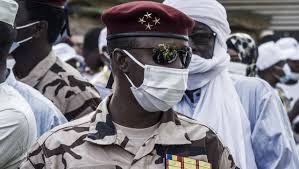Chad Junta Leader Grants Amnesty To 301 Persons Accused Of Terrorism, Other Offenses
The beneficiaries belonged to different bodies, including politico-military ones which ‘threatened’ state peace.

The head of Chad’s military junta, Gen. Mahamat Idriss Deby Itno is granting general amnesty to 301 persons who are in violation of the country’s laws.
He approved the decision on Thursday, Dec. 31, one of which granted amnesty to 44 persons jailed for threats to the integrity of the state and “crimes of opinion.”
The second amnesty was granted to individuals charged with acts of terrorism, complicity, recruitment, and enrolment of minors of less than eighteen years into armed forces.
Among the 44 people pardoned in the first law are leaders of politico-military movements, including; Mahamat Nouri Allatchi who commands the Union of Forces for Democracy and Development (UFDD), Abakar Tollimi who is president of the Conseil National de la Resistance pour la Democratie (CNRD), Bichara Idriss Haggar, a renown Chadian author, Djiddi Halmaye, and Mahamat Abdelkerim Hanno who recently returned to the country unconditionally.
There is also the activist and human rights defender, Baradine Berdei Targuio who was jailed for “crimes of opinion.”
Among the 257 persons on the second list of those granted amnesty are rebel chiefs Timane and Tom Erdimi, and Adouma Hassaballah.
The two laws came as a result of actions by the Special Technical Committee responsible for politico-military participation in the national dialogue led by Goukouni Weddey and placed under the supervision of the President of the Transitional Military Council, General Mahamat Idriss Deby Itno.
This committee last October met with several politico-military groups in Europe and Africa for exchanges with a view to their participation in the national dialogue.
Amnesty and other claims were put on the table as conditions sine qua non for their participation in dialogue or the beginning of negotiations.
The laws just promulgated were debated and adopted by the National Transitional Council which for now stands for the legislative organ of the country.
With these strong signals sent by the Transitional Military Council to the politico-military groups by way of the amnesty laws as well as the putting in place of a commission charged with returning confiscated belongings, the road seems open for the pre-dialogue of the politico-military as well as the big national dialogue that is being very much awaited.
However, for now, no date has been fixed for the pre-dialogue neither by the Transitional National Council nor by the Organising Committee for the Inclusive National Dialogue. All that is known for now is that the dialogues would be held in Doha, Qatar under the good offices of the Gulf countries.
Support Our Journalism
There are millions of ordinary people affected by conflict in Africa whose stories are missing in the mainstream media. HumAngle is determined to tell those challenging and under-reported stories, hoping that the people impacted by these conflicts will find the safety and security they deserve.
To ensure that we continue to provide public service coverage, we have a small favour to ask you. We want you to be part of our journalistic endeavour by contributing a token to us.
Your donation will further promote a robust, free, and independent media.
Donate HereStay Closer To The Stories That Matter




